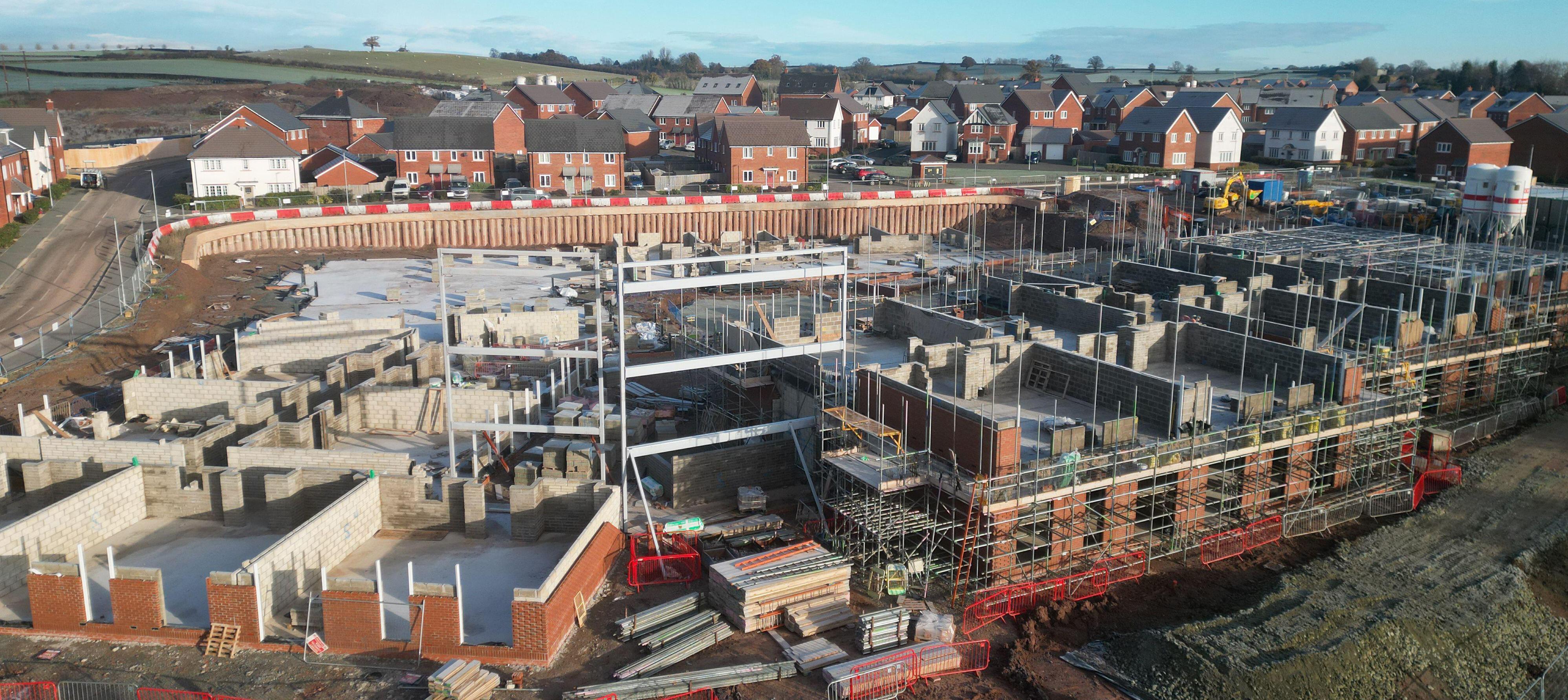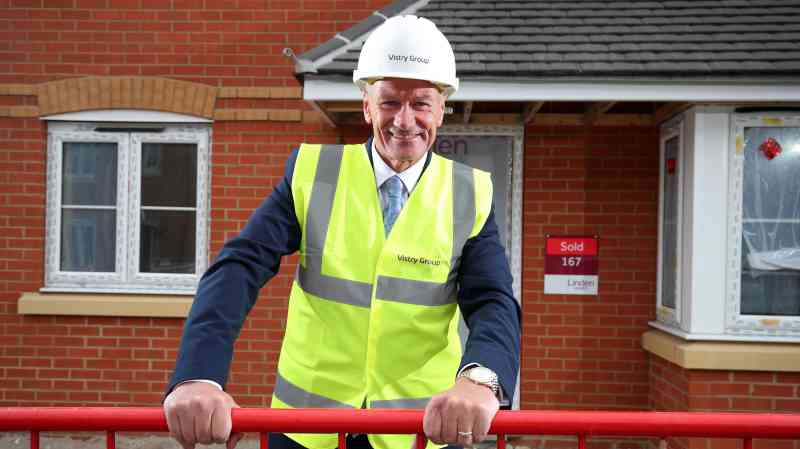The boss of Britain’s biggest housebuilder has claimed that his decision to go all-in on building affordable homes could start to look “inspired” after it reported a rise in half-year profits.
Many builders have struggled to make money this year because would-be buyers have been put off by much higher mortgage rates. However, Vistry, which is run by Greg Fitzgerald, achieved a 7 per cent rise in its adjusted pre-tax profit to £186.2 million in the six months to the end of June, up from £174 million in the same period of 2023.
Vistry’s statutory pre-tax profit jumped by 37 per cent to £156.7 million from £114.2 million at the halfway point the year before, when the bottom line was dented by restructuring costs.
Similarly, while other housebuilders have slashed their payouts to shareholders, Vistry has gone the other way. It confirmed that it would return £130 million to its investors over the coming months through share buybacks. That was more than double what many in the City had been expecting and means Vistry is on track to keep its promise of returning £1 billion to its shareholders between 2023 and 2026. Over the past year, it has returned, or committed to return, £285 million.
Fitzgerald, 60, said Vistry has bucked the trend among developers because of the pivot he had made at this time last year to focus on building homes predominantly for local authorities, housing associations and institutional landlords rather than the private sale market.
It was his way of betting that the government, of whichever colour, would have to address what he considers to be the root cause of the nation’s “housing disaster”, which is a lack of affordable homes.
“It’s probably going to cost the government £3 billion this year putting families into Holiday Inns this week and Premier Inns the next,” Fitzgerald said. “It’s getting out of hand. There’s only so many years you can kick the can down the road and I think we’ve come to the end of that road.”
He said the new government was “more fixated and obsessed with housing and affordable housing than even we are. I think they mean, excuse the pun, business. Our strategy could very well, in 12 to 24 months’ time, not only look like a good strategy but the timing of it could be seen as inspired.”
Vistry built 7,792 flats and houses between January and June, a 9 per cent increase compared with the first half of 2023. It expects to build more than 18,000 during this year as a whole.
Local authorities and housing associations will buy more than half of those, but concerns have been raised about such bodies’ finances in recent months. Like developers, they are on the hook for the cost of repairing dangerous cladding, but are also having to invest heavily in improving their existing stock.

That has led some analysts to question whether Vistry is right to align itself with partners that are struggling for money. “We’re concerned,” Fitzgerald said, “but we expected to be concerned when we announced the strategy. [Housing associations and local authorities’] balance sheets need to be improved. We think those concerns are going to start to be alleviated by the Labour government as we go towards the budget.”
Although it can trace its roots back to the 1800s, Vistry as it is today was formed in 2020 by the merger of Bovis Homes and the housebuilding division of Galliford Try.
Its shares, already up by more than 70 per cent since last summer, were up another 112p, or 8.5 per cent, to £14.30 by the close on Thursday.
